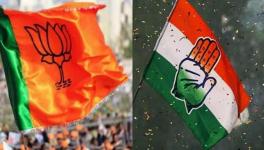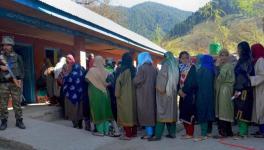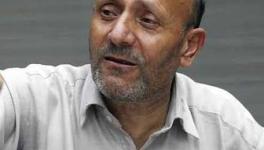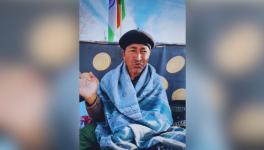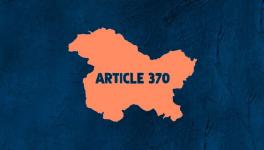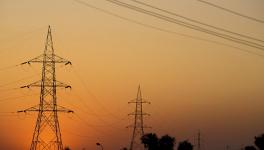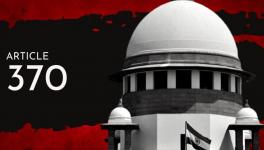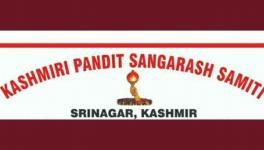Kashmir's ‘Grand Old Party’ NC Holds First Meet After Scrapping of Art 370
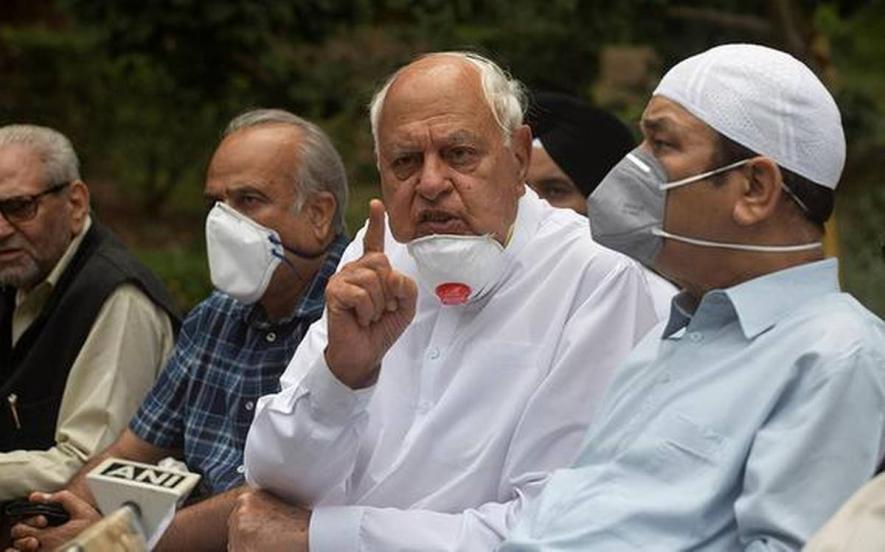
Image Courtesy: The Hindu
Srinagar: Senior political leaders of the National Conference (NC) met for the first time after the abrogation of Article 370 at the residence of president Farooq Abdullah on Thursday evening, the same venue where the top political leaders of the Valley met for the last time on August 4 last year.
The former chief minister of the erstwhile state of Jammu and Kashmir said that his party was committed to what was discussed by the regional mainstream leadership on that day ahead of the Centre’s Article 370 move in what came to be known as the Gupkar Declaration.
“I am glad the leaders are free to move and hope that it’s not just this one time. I am planning to meet more leaders the next few days so that we are able to talk freely and sit down to chalk out the future of action for our state and its people,” Abdullah said.
On August 4, 2019, regional political parties, including the NC, Mehbooba Mufti-led People’s Democratic Party, Bharatiya Janata Party-ally Sajjad Lone-led People’s Conference and Shah Faesal- led Jammu Kashmir People’s Movement participated in an all-party meeting at the residence of NC president to deliberate on the rising tension in the wake of dozens of administrative orders leaked before Article 370 was scrapped by the Centre. Back then, the leadership claimed they had no clue about the BJP’s plan but were apprehensive about it removing the ‘special status’ of the state.
Following the meeting last August, the party leadership announced their resolve to stand united to safeguard the identity, autonomy and special status of J&K. This was referred to as the Gupkar Declaration. A few hours after the meeting, all the leadership was detained.
According to Abdullah, the August 21 meeting was called to confirm whether senior party leaders were free to move, as claimed by the authorities in the region. The NC meeting, chaired by Farooq Abdullah, was attended by Muhammad Shafi Uri, Ali Muhammad Sagar, Abdul Rahim Rather and Nasir Aslam Wani. NC parliamentarians Hasnain Masoodi and Akbar Lone were also part of the meeting. Over the next few days, the party will hold similar meetings to see if all party workers and leaders are able to move outside their homes.
Abdullah, who continued to refer to J&K as a “riyasat” or state, maintained that the party was committed to the Gupkar Declaration.
The region’s mainstream leadership, however, is caught in a limbo since the abrogation move and subsequent bifurcation of J&K was unilaterally carried out by the Central government in Delhi.
Many of those who participated in the Gupkar meeting last year have since joined a new political front, called Jammu Kashmir Apni Party, termed by many, including the NC, as an extension of Delhi’s arm or even ‘proxies of BJP’. Former bureaucrat Shah Faesal, who sat close to Abdullah during the last year’s Gupkar meeting, abandoned his own political party JKPM recently and is reportedly rejoining the civil services.
“If someone’s conscience is weak, Farooq Abdullah is not responsible for that. That is his conscience and he has to answer for that,” the NC president said.
While the NC leadership claimed they were yet to chalk out a political course for future and would do that only if they are sure about all party members being completely free, it's been a year since the BJP-led government carried out a slew of political measures, many among them seen in the backdrop of "disempowering" the regional political parties, especially the NC and PDP.
Even as the authorities have released almost all the political activists and leaders of the mainstream parties, PDP president and former CM Mehbooba Mufti continues to remain under house detention for over a year now. In the meantime, many in her party ranks, including senior leaders have defected to JKAP led by Altaf Bukhari, a former minister in the PDP-BJP coalition government.
Many, however, in the mainstream believe Farooq Abdullah -- being the seniormost leader -- should take charge of leading the political front amidst the ongoing "political crisis."
"Respected Dr Sahib waiting for Mehbooba Mufti Sahiba's release from detention and talking about Gupkar Declaration in the same breath is confusing. People expect you to lead from the front but the "waiting diplomacy" amounts to escapism. When leaders are out, the 'strategy' shall follow," PDP spokesperson Firdous Tak tweeted.
M. Ibrahim Wani, Assistant Professor of Kashmir Studies at Kashmir University, says that for any mainstream political party in Kashmir, the litmus test is elections, through which the political space is carved out in the electoral arena. Kashmir will continue to remain in a sort of a political grey space till elections are announced.
"But before this, there are certain things that need to be taken into account. So far we have not seen any political outreach on the ground. Also, if Gupkar Declaration is the cornerstone, then an all- party meeting is one of the meaningful exercises that would bring clarity to the mainstream politics of the region," Wani says.
Wani adds, however, that there are indications that some amount of space appears to be opening up tacitly, of which Thursday's meeting is an indicator.
"There has to be more clarity though and parties have not been explicit about their plans and standing. What they need immediately is to build a consensus, i.e. among all the stakeholders of the Gupkar meeting. Whether it's unification of the region, statehood, pre-August position or pre-1953 position, the parties need to articulate an opposition to the abrogation undertaken last year," Wani says.
"Ideally, if such a consensus is developed, this may even assume the form of a broader coalition for the elections," he adds.
The mainstream political parties in J&K are caught in the moment. For them the August 5 move has delivered an irreparable damage to the plank on which mainstream politics stood for decades. In Kashmir, what separated them from the separatist Hurriyat was participation in the electoral politics. The latter termed the polls an irrelevant exercise in the context of the larger political dispute that Kashmir has been. Now, the mainstream is faced with a renewed conundrum where they have to navigate in the new enforced political reality, or accept and move with the tide to retain that mainstream political space, which has been their historical reality.
Get the latest reports & analysis with people's perspective on Protests, movements & deep analytical videos, discussions of the current affairs in your Telegram app. Subscribe to NewsClick's Telegram channel & get Real-Time updates on stories, as they get published on our website.









